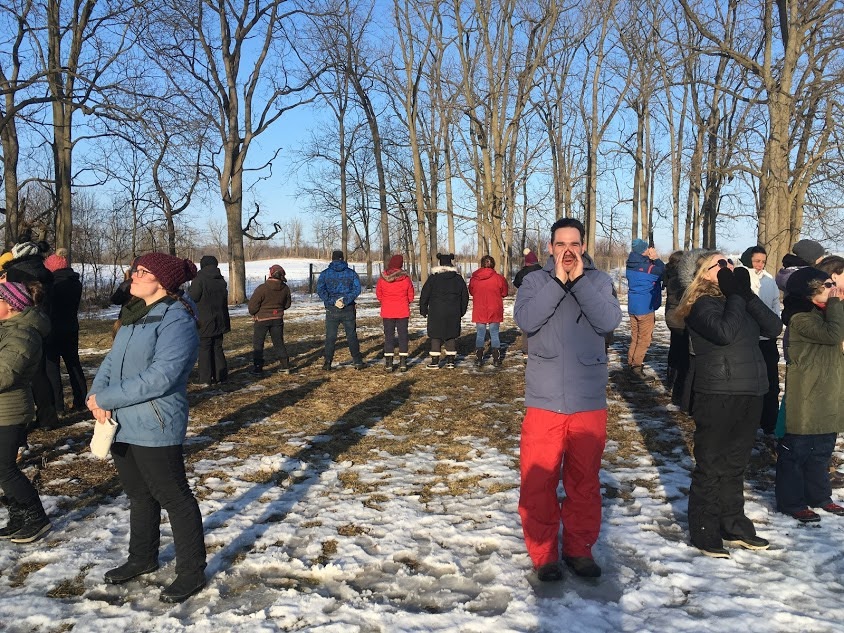
By Rebecca Seiling, CNAC Facilitator and Founder/Facilitator of Kitchener Forest School
A lot has happened since the first weekend of our Cambridge 2020 Modular Course! We gathered together February 22-23 at Cambridge Farm and Forest School for two days of learning together on the land. We are now gathering online to continue our learning until we can meet in person again.
As the dust settled from our time together, it was like I was shaking a gold-mining pan, looking for those nuggets that would remain after the fine sand sifted through. There were lots! But the ones I’ll share here have to do with rooting down into place and establishing our own eco-identity as practitioners – so that it oozes out of us into our practice with the explorers we lead. The land is central to our practice as forest school leaders, and our weekend helped to solidify the importance of that connection.
We were so grateful to have Jan Sherman, an Anishnaabe Knowledge Keeper, facilitate our time both mornings that we gathered. Many of the following gold nuggets come from this time spent listening, singing, and speaking together.
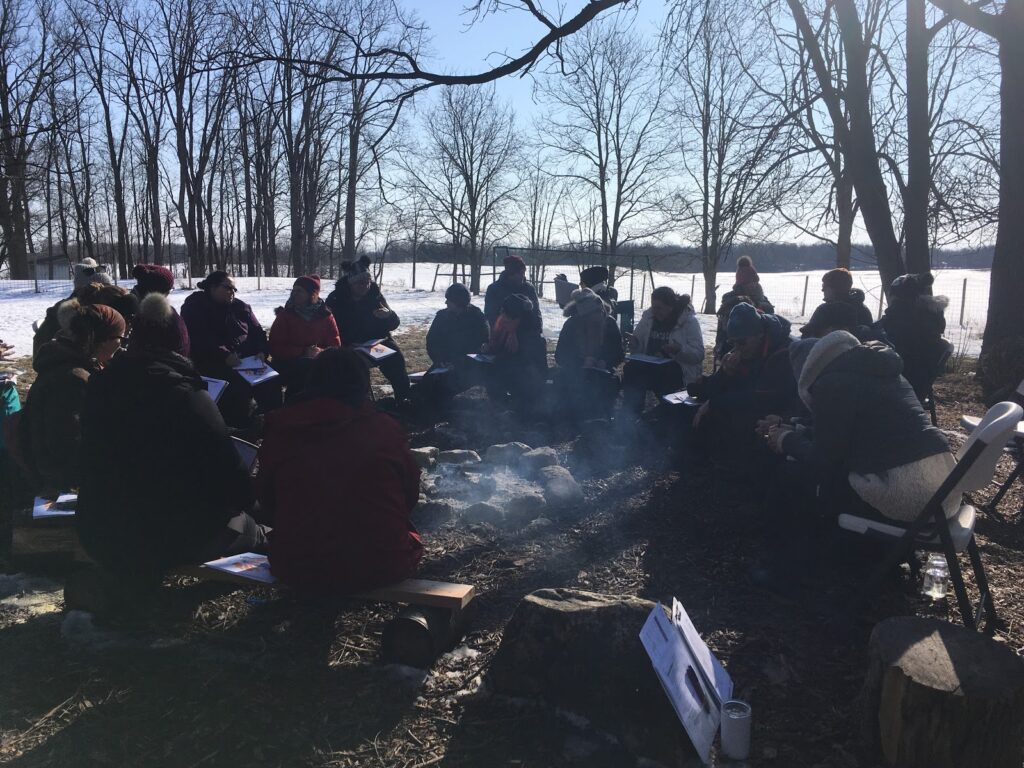
Connect with your own memories of land.
As practitioners, connecting with our own experiences of place helps us to connect the children to the land. We spent time doing this together – drawing, remembering, and talking (sometimes through tears) about our own cherished memories and identity in relation to land. We carved out space for play and creating, which also helped us start to form a relationship to this new place where we’re learning.
Connected people connect others. The more we can cherish and live this connection, the more we can share it with the young learners in our groups.
The language we use matters.
What are the pronouns we use to describe plants, creatures, the earth? When we call something “it” does this convey a loving relationship? How about she/him/they? Practitioner Emilie Borghese reflected: “I am grateful for the simple ways in which I can shift my practice to reflect Jan’s teachings in simple, yet profound ways: personifying the flora & fauna with pronouns, as an example.”
Which words describe a caring relationship that is reciprocal? Jan encouraged us to try to shift from the verb “steward” to “care.” Steward can imply a top-down approach where humans are the most important. If we use that word, then let’s also talk about ways that the earth stewards us. If I think of the earth as my parent/mother – I would never use the verb “steward” to describe how I connect to my mom. Jan taught us a song that begins: “The earth is our mother, we will take care of her…” This song reinforces this caring, loving relationship.
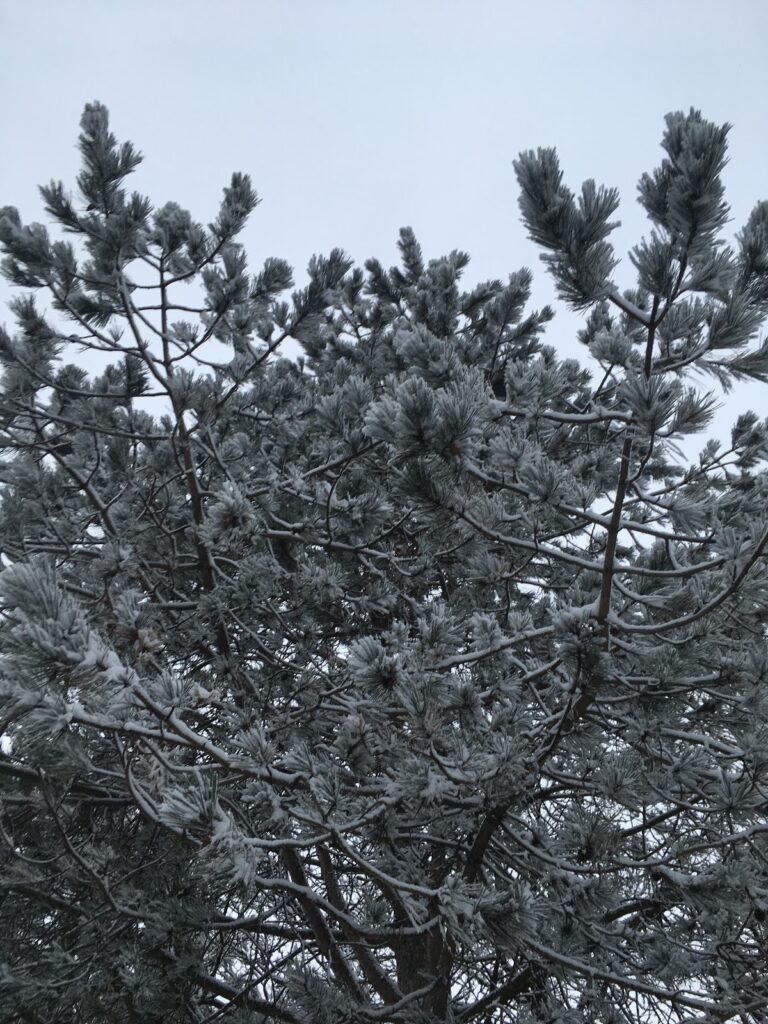
Converse with the earth.
In what ways do you speak and listen to the land? Jan encouraged us, “Introduce yourselves to the land. Speak your name, and then listen. What do you hear?” The lessons are there… we need ears to hear and patience to listen.
We also talked about our posture as we enter the land. When we want to pick a plant, or to make a fire, we often assume we can enter/harvest/make before asking permission. You are a guest on the land. How do guests behave? What is your posture?
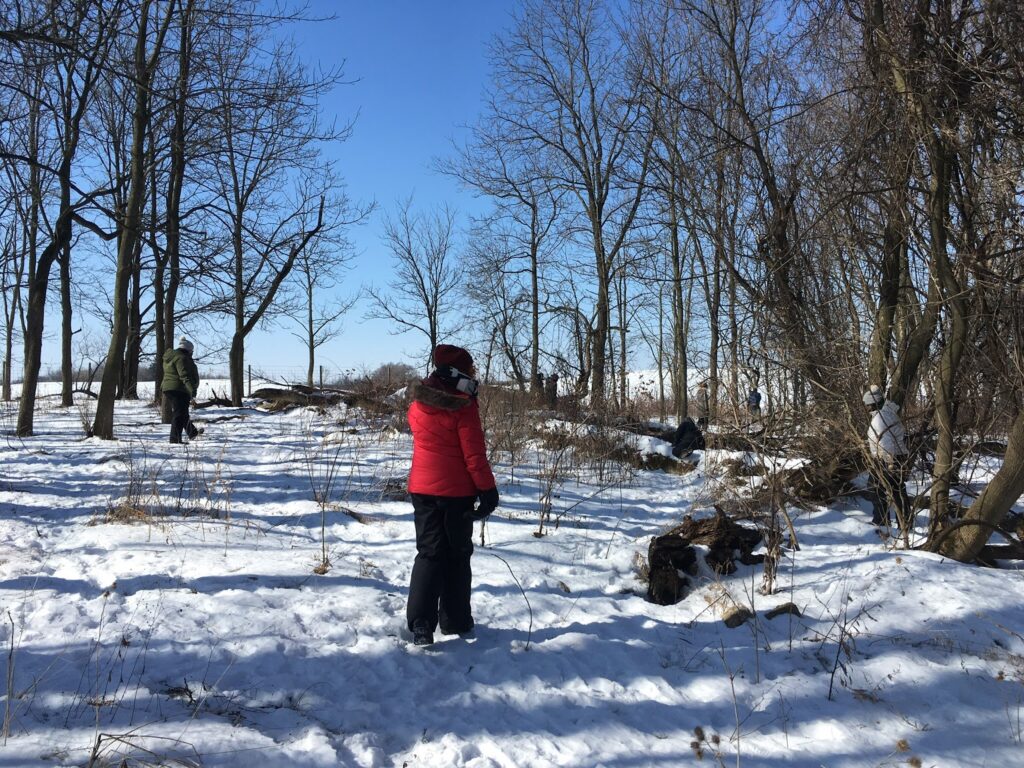
Offer gratitude – through words, physical offerings, presence, care.
Giving to the land first gets us away from the “me first” mentality, and towards an “earth first” one. What can you offer to the earth to remind you of your reciprocal relationship and dependence? My co-facilitator Juwain St. John reflected: “I was thinking about water and how important it is as I start every day and that the earth should have that first offering.” Even pouring water on the land or a plant before drinking some ourselves can help us to remember that teaching.
Practitioner Katherine Taylor echoed this idea: “I was touched by Jan’s encouragement to thank the 4 elements at the beginning of each day, and I have been incorporating this into my gratitude practice.”
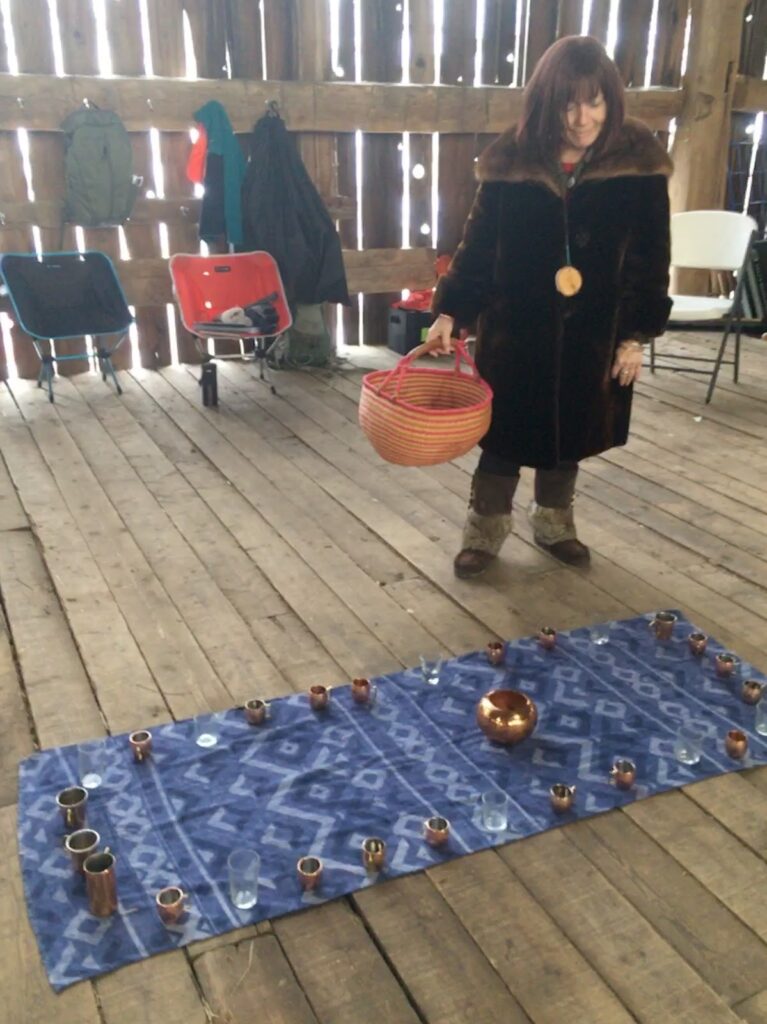
Sing to the water. Shout to the forest. Give thanks.
Jan told us that the land loves to hear us sing. During a water ceremony, she taught us a lullaby that translates to: “water, we love you. We thank you. We respect you.”
We ended our weekend by turning out towards the forest and shouting, “Thank you, Forest!”
What are the skills that help us move forward in our journey of becoming a land-based forest school practitioner? One that seems to be at the heart of who we are is developing a deep and growing relationship with the land, which can come through dedicated time and attention, approaching the land with a posture of openness, gratitude, and wonder.

Thank you, Forest!
